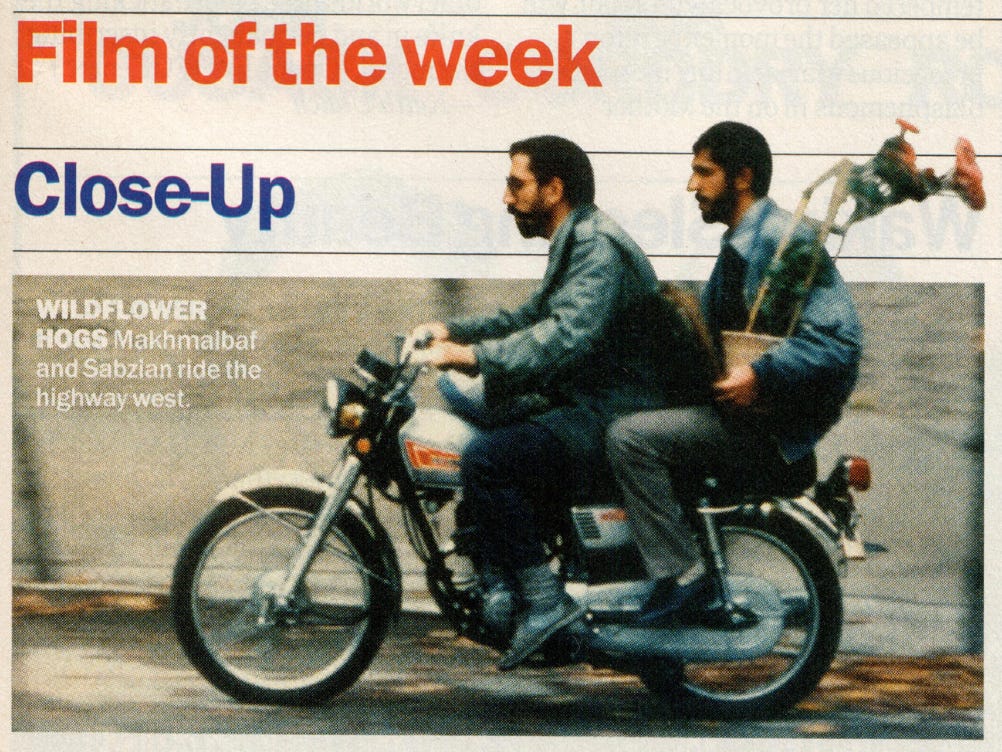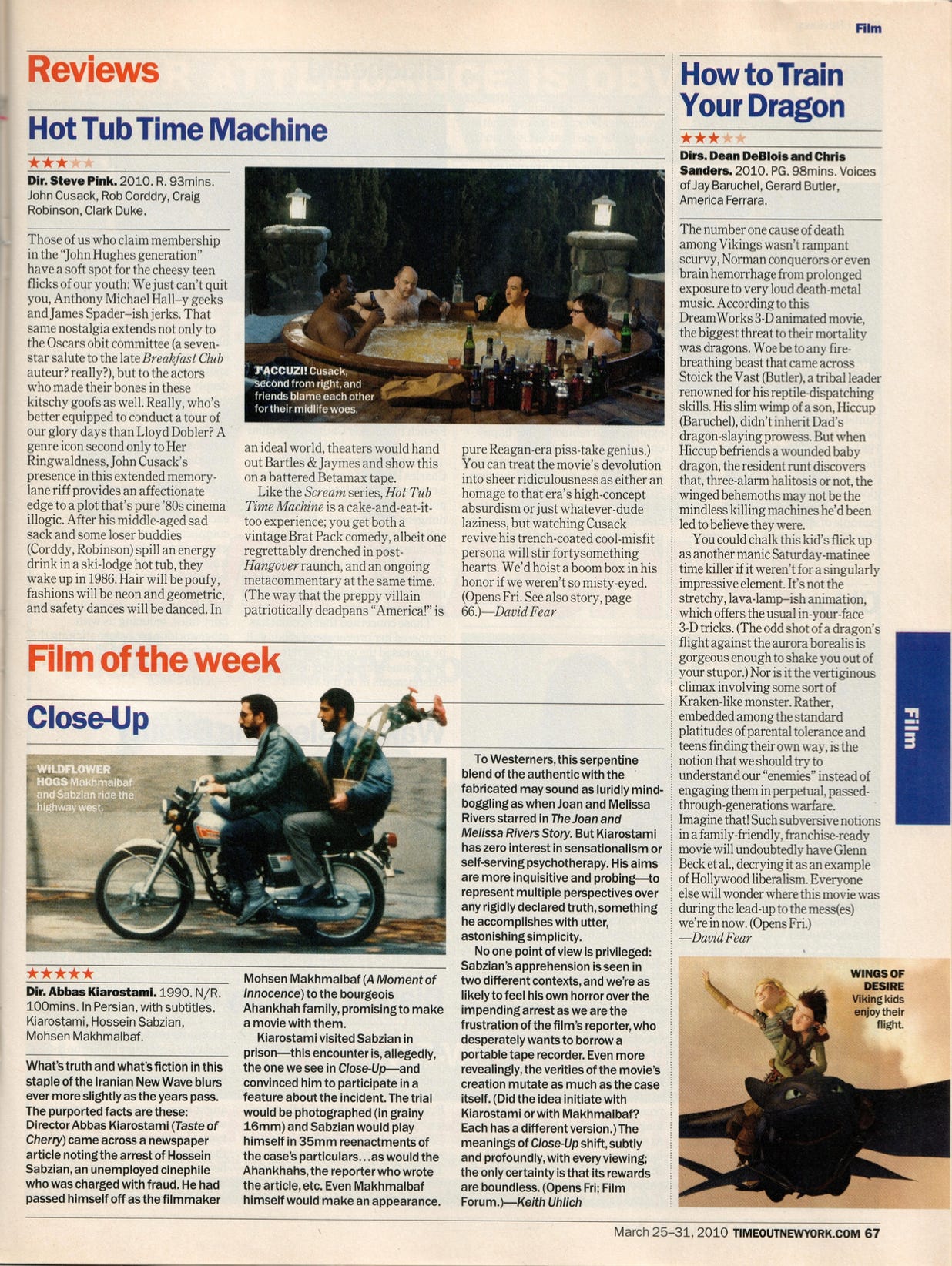★★★★★
Dir. Abbas Kiarostami. 1990. N/R. 100mins. In Persian, with subtitles. Kiarostami, Hossein Sabzian, Mohsen Makhmalbaf.
What’s truth and what’s fiction in this staple of the Iranian New Wave blurs ever more slightly as the years pass. The purported facts are these: Director Abbas Kiarostami (Taste of Cherry) came across a newspaper article noting the arrest of Hossein Sabzian, an unemployed cinephile who was charged with fraud. He had passed himself off as the filmmaker Mohsen Makhmalbaf (A Moment of Innocence) to the bourgeois Ahankhah family, promising to make a movie with them.
Kiarostami visited Sabzian in prison — this encounter is, allegedly, the one we see in Close-Up — and convinced him to participate in a feature about the incident. The trial would be photographed (in grainy 16mm) and Sabzian would play himself in 35mm re-enactments of the case’s particulars…as would the Ahankhahs, the reporter who wrote the article, etc. Even Makhmalbaf himself would make an appearance.
To Westerners, this serpentine blend of the authentic with the fabricated may sound as luridly mind-boggling as when Joan and Melissa Rivers starred in The Joan and Melissa Rivers Story. But Kiarostami has zero interest in sensationalism or self-serving psychotherapy. His aims are more inquisitive and probing — to represent multiple perspectives over any rigidly declared truth, something he accomplishes with utter, astonishing simplicity.
No one point-of-view is privileged: Sabzian’s apprehension is seen in two different contexts, and we’re as likely to feel his own horror over the impending arrest as we are the frustration of the film’s reporter, who desperately wants to borrow a portable tape recorder. Even more revealingly, the verities of the movie’s creation mutate as much as the case itself. (Did the idea initiate with Kiarostami or with Makhmalbaf? Each has a different version.) The meanings of Close-Up shift, subtly and profoundly, with every viewing; the only certainty is that its rewards are boundless.—Keith Uhlich



